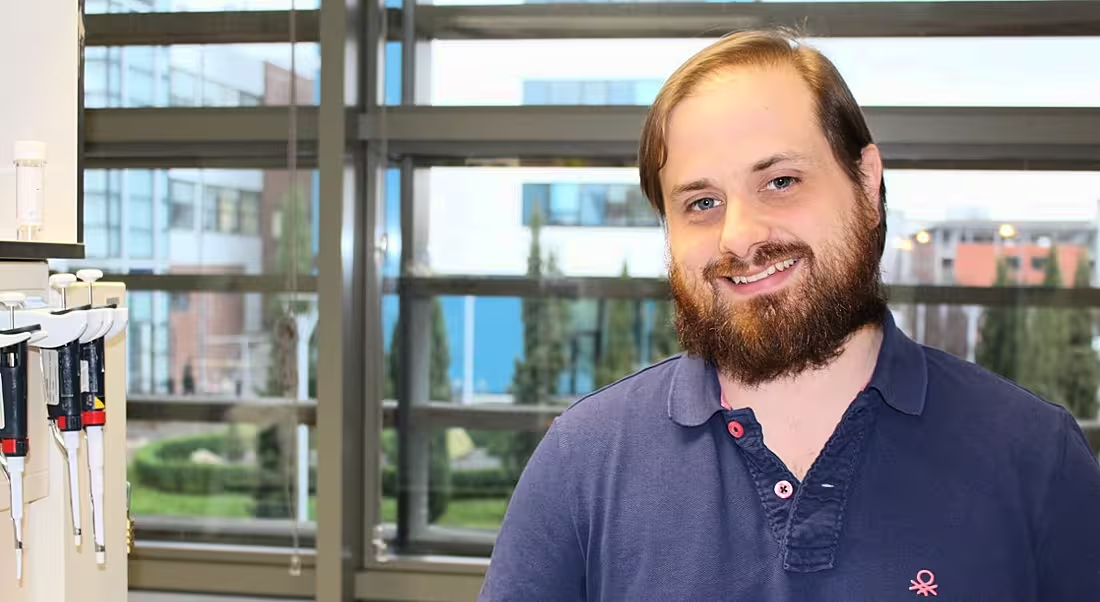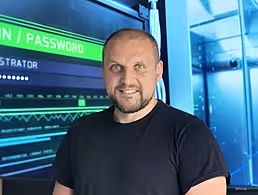Scientific research is the driving force behind humankind’s advancement, but how much do any of us actually know about it, or its nuances?
Here, Dr Denis Collins, a cancer research scientist at the National Institute for Cellular Biotechnology (NICB) at Dublin City University (DCU), gives us some insight into his work, talking us through an average day in the role.
What is your role within NICB?
I am an oncology research fellow and principal investigator running the cancer biotherapeutics programme at the NICB, DCU. The cancer biotherapeutics programme is part of the Molecular Therapeutics for Cancer group, led by Dr Norma O’Donovan and Prof John Crown.
If there is such a thing, can you describe a typical day in the job?
A typical day for me is spent in the NICB, divided between the office and the lab.
A day can consist of a mix of tasks, including lab work, supervision, meetings, paper drafting, grant writing, presentations, email correspondence, administration, teleconferences or lecturing. Multitasking means time management and planning, and weekly schedules are dictated by project timelines and priority deadlines.
The job can be a little seasonal. For instance, annual grant application deadlines mean long days writing at a computer with reduced lab time at various times of the year.
Today, correspondence was the first thing on the list. Once the emails were taken care of, we had our fortnightly lab meeting with updates on individual projects. The arrival of a new international student required administrative attention and time given to safety induction and training in basic cell culture techniques.
In the afternoon, I prepared cancer cell samples for analysis of cell signalling proteins by western blot and reverse phase protein array.
The afternoon and evening is the time I find writing the easiest so, following the lab work, I concentrated on revision of a manuscript, editing an abstract for a collaborative research application and this piece for Siliconrepublic.com.
What types of project do you work on?
The last 15 years have seen the development of targeted therapies for breast cancer. These drugs are designed to hit a target specific to certain breast cancers, therefore reducing side effects associated with classical chemotherapies. For example, antibody therapies like trastuzumab and pertuzumab are targeted therapies used for treating patients with breast cancer that over-express the HER2 protein.
A main focus of my work is examining the immune response to trastuzumab and pertuzumab in breast cancer. The goal is to find the combination of antibody therapy and HER2-targeting TKIs (tyrosine kinase inhibitors) such as lapatinib that will result in the best immune response in breast cancer patients.
Genomic instability and mutation is a hallmark of cancer. Mutations in genes can be a potent driver of the disease and can also render tumours resistant to targeted therapies. A project examining the impact of gene mutations on response to antibody therapies is also underway.
‘The importance of fostering good relationships, open communication and multidisciplinary networking would not have been as apparent to me in former positions’
Immune checkpoint inhibitors (such as ipilimumab and nivolumab) are a new class of chemotherapy, revolutionising cancer treatment. Immune checkpoint inhibitors activate cancer-specific white blood cells, potentially restarting the body’s own anti-cancer defences. Nicola Gaynor, a PhD student under my supervision, is examining the expression of PD-L1, an immune checkpoint protein, in multiple cancer types.
These projects use cancer cells grown in the lab, white blood cells and plasma from patients enrolled in Cancer Trials Ireland clinical trials, and data generated from next-generation sequencing of tumour DNA. The ultimate aim of our work is to improve breast cancer patient outcomes through translational research, identify biomarkers of response, and find new treatment strategies employing established and new therapies.
The projects above would not be possible without our collaborators in the Irish Cancer Society-funded research centre Breast-Predict, and funding from the Cancer Clinical Research Trust, the Irish Research Council and Roche.
What skills do you use on a daily basis?
Problem solving is right up there. Examples would be troubleshooting an experimental method that is not working within parameters, or adapting a work plan in light of new, unexpected data.
Communication skills are always in use, whether it is a PowerPoint presentation on our latest results, or a meeting to discuss potential ideas for grant applications.
Management of the team and ongoing projects require analytical thinking, approachability, initiative and the ability to listen.
What is the hardest part of your working day?
I am a night owl, so in general, I would say the first hour!
A lot of planning goes in to projects and timelines. Dealing with frustrations that arise when things occur outside of the team’s control – such as the breakdown of a key piece of equipment – can be testing, but is all part of the challenge.
Do you have any productivity tips that help you through the working day?
I always have a to-do list for each day to keep track of the priorities.
Starting with email communications in the morning gives respondents more time to get back within the day if needs be.
If you have an essential experiment to do, clear time for it. Rushing it and making a mistake will mean wasted resources and doing it a second time.
Grant applications or paper submission deadlines require concentration and low interruption levels. An unwritten code has developed over the years: if the office door is half-open, call in; if it’s closed, please email.
I’m not sure if having understanding work colleagues is a tip!
When you first started this job, what were you most surprised to learn was important in the role?
Earlier in my career – during my PhD and early postdoctoral positions – I could afford to be more insular, concentrating solely on a single project in relative isolation. Success in my current role not only relies on novel science, but also requires a more outward-looking approach, building networks of academic and industry collaborators that co-operate effectively to deliver mutually beneficial outcomes.
The importance of fostering good relationships, open communication and multidisciplinary networking would not have been as apparent to me in former positions.
How has this role changed as the research sector has grown and evolved?
I think the role of the academic researcher is broadly similar to what it has always been – publish strong research, secure funding and educate – but the research ecosystem has changed, requiring a certain amount of adaptability.
The exchequer funding landscape in Ireland has moved steadily towards more applied research. As a research group that has always been focused on clinically relevant patient research involving cancer drugs, we have been positioned to continue being competitive, but exploring questions rooted in more basic research has become more difficult. Non-exchequer funding through charities has become a major contributor to research efforts all over the country.
Public engagement has been revolutionised, mostly due to the rise of social media. Your work, interests and events can now be disseminated instantly to a global audience – lay and expert – with one tweet.
What do you enjoy most about the job?
Getting results. When addressing a research question, the majority of time is spent on the resourcing, design and execution of the work plan. There is a buzz when the work has been completed, the results are in and you have that answer.




